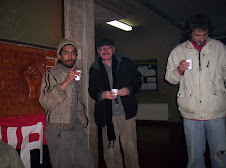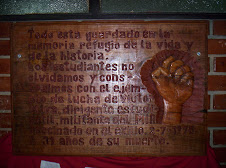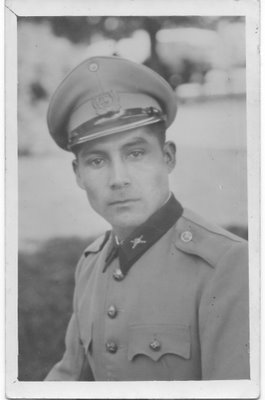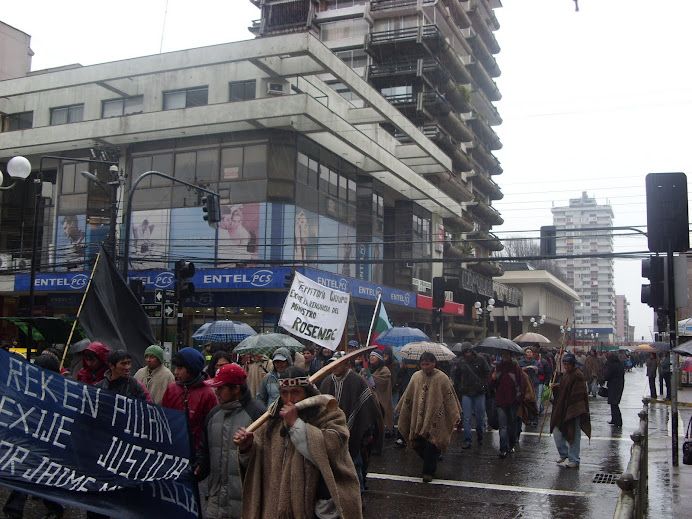The National Movement of Victims of State-Sponsored Crimes
(Movimiento Nacional de Víctimas de Crímenes de Estado) presents the initiative to accompany the communities and grass roots organizations gravely affected by violence carried out by the State and through the paramilitary strategy. Nobel Laureate Adolfo Pérez Esquivel, the Mothers of the Plaza de Mayo, well known victims’ associations from several countries, and distinguished lawyers and academics, have decided to offer their support to the victims of State-sponsored violence in Colombia.
Thousands of crimes against humanity and human rights violations have been committed throughout the different phases of repression and paramilitary operations in Colombia since 1962. Because the memory of these crimes and violations need to be known, protected, and safeguarded, 25 well known notables and organizations with great moral character have come together to participate in an Ethics Commission.
This Commission aims to be in session over the span of ten years to collect evidence, documents, objects, testimonies, and accounts by victims, families and communities from throughout Colombia. The Commission also aims to support initiatives for memory, dignity, and comprehensive reparation. It will also be an opportunity to ensure the protection of communities that have fought over the years for their fundamental rights and for the respect for their territories.
The members of the Ethics Commission consider that Law 975 of 2005 denies essential aspects of the rights of the victims. This is not only because this law ignores the international standards which established these rights, but also because the Constitutional Court’s ruling (which attempted to bring the law closer to international standards) is being evaded through different presidential decrees. Likewise, the members of this Ethics Commission consider that the National Commission of Reparation and Reconciliation has disregarded the participation of the victims and lacks the necessary autonomy and independence from the Colombian government.
The members of the Ethics Commission, which will be publicly presenting their objectives and goals, will also be meeting with the victims in the city of Bogotá, Cacarica (Lower Atrato, Department of Chocó), San Onofre (Department of Sucre), and Barrancabermeja (Department of Santander).
Over the course of the following ten years, the members of the Ethics Commission will safeguard the confidentiality of many of the acts told by the victims. The Commission will also be publicly speaking out against other acts. The members of the Commission will also present the results of their work to the public as input for a Truth Commission, which would offer real guarantees for the victims of crimes against humanity and genocide.
The proposal for the Ethics Commission has been promoted by the National Movement of Victims of State-Sponsored Crimes, which brings together nearly 200 victims’ organizations from throughout Colombia. The Ethics Commission aims to affirm the Right to Memory and Truth.
8 members of the Ethics Commission will be in Colombia from February 15 to March 3.
The following members of the Commission will be in Colombia:
* Mirta Baravalle from the Mothers of the Plaza de Mayo – Founding Line (Argentina),
* Libertad Sánchez Gil from the Association for the Recovery of Historical Memory of Mérida and Comarca (Spain),
* Enrique Nuñez from the Ethics Commission against Torture,
* Lorenzo Loncon from the Mapuche Indigenous People (Chile),
* Francine Damasceno Piñeiro from the Landless Rural Workers’ Movement - MST (Brazil),
* Carlos Fazio, Research Professor at UACM and UNAM, writer and journalist for the newspaper La Jornada (Mexico),
* Alberto Giraldéz, representing the Santo Tomás Community from Madrid (Spain),
* Bernardine Dohrn, Lawyer and Specialist on Child Rights, Associate Professor of Law at Northwestern University in Chicago (USA).
The following persons also make up the Ethics Commission:
* Adolfo Pérez Esquivel, Nobel Peace Prize laureate (Argentina),
* Francois Houtar, director of CETRI-Belgium and founding member of the World Social Forum,
* Thomas Gumbleton, Emeritus Auxiliary Bishop of Detroit (USA),
* Gilberto López y Rivas, director of Etnología y Antropología, author of works on Anthropology, Tribal and Indigenous Peoples, and Social Cultural Resistance,
* Miguel Álvarez, expert on issues of peace and conflict negotiation, member of Serapaz,
* Elizabeth Deligio, member of School of the Americas Watch (USA).
http://www.prensarural.org/spip/spip.php?article263
*
*
*































































































.jpg)

.jpg)



























































































No hay comentarios:
Publicar un comentario